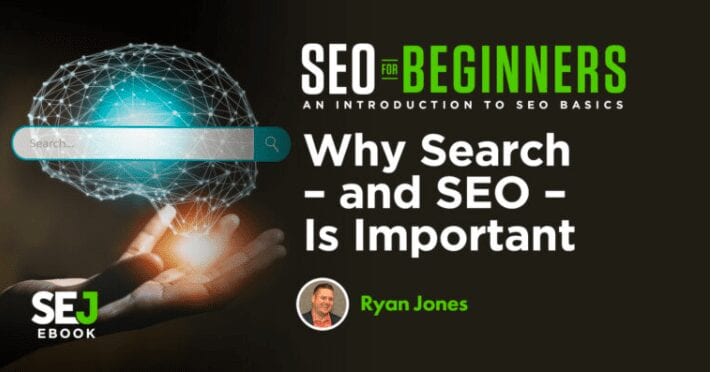The consumer journey is gradually playing a larger role in search. Users search to solve problems, to accomplish tasks, and “do” things.
In 2009, Bill Gates gave a speech at a private dinner where he famously said: “The future of search is verbs.” Gates wasn’t talking about the words people type into search boxes. He was instead talking about why people search. Before we can understand why search is important, we need to take a step back and understand why people search.
Why People Search
In the early days, people searched to find a list of documents that contained the words they typed in. That’s no longer the case.
Today’s searchers search to solve problems, to accomplish tasks, and to “do” something.
They might be searching to book a flight, buy something, learn the latest Taylor Swift lyrics, or browse cat photos – but these are all actions. Or, as Gates referred to them, verbs.
When a user starts a search, they’re really starting a journey. Marketers love to talk about something called “the consumer journey.”
It’s just a fancy way of referencing a user’s path from the inception of their task to the completion – and most of these journeys start with a search.
The consumer journey has been gradually playing a larger role in search over the last decade.
Originally depicted as a funnel wherein users move from awareness to consideration to purchase, this old consumer journey has become outdated (although we still use this model for illustrative purposes and to make persona research easier).
The Evolution of Search & the Consumer Journey
The modern consumer journey no longer represents a funnel, but looks more like a crazy straw – with various twists and turns representing the various channels, mediums, and devices that users interact with today.
To fit this new model, search has had to evolve from simply words on the page to understanding the user intent at each phase of the journey.
Search is no longer just about keywords but has evolved into providing the right content to the right user at the right time in their journey to help them accomplish their task.
For the users, it’s all about the verbs. For search marketers, it’s all about helping the user on their journey (and, ideally, influencing them a bit along the way.)
Sticking with the crazy straw model, today’s consumer journey no longer happens on a single device.
Users may start a search on their mobile device, continue researching on their tablet or work laptop, and ultimately purchase from their desktop at home.
Search isn’t just limited to computers or phones.
Users can now search from a variety of devices, including watches, smart glasses, Bluetooth speaker assistants, and even kitchen appliances.
In today’s world, even my fridge has its own Twitter account – and search marketers need to be cognizant of how various devices relate to each other and play a part in a user’s search experience.
There’s some healthy debate as to whether this has always been the case, but in today’s always-on, hyper-connected world, SEO has morphed into what we’ll call “real marketing.”
Gone are the days of hacks, tricks, and attempting to reverse-engineer algorithms.
Today’s SEO focuses on:..
Read The Full Article at Search Engine Journal



